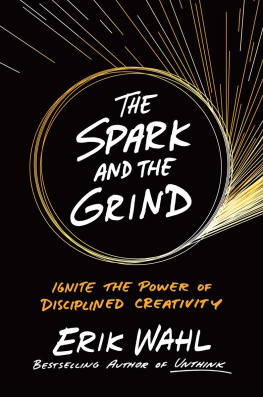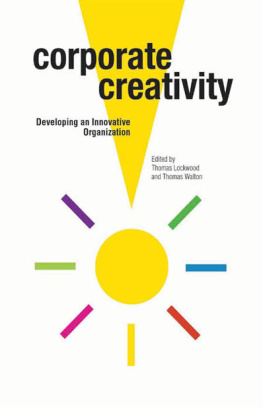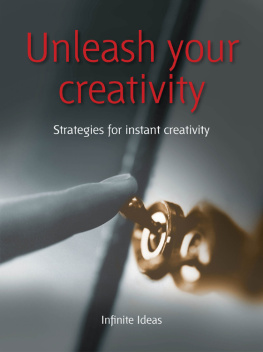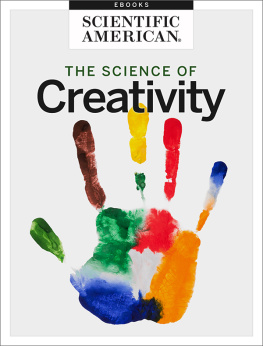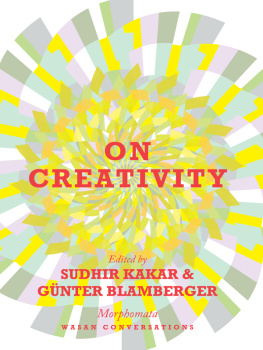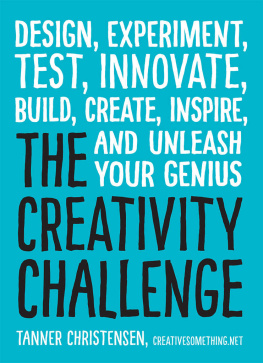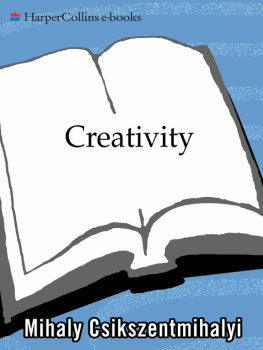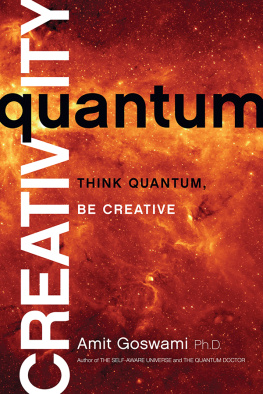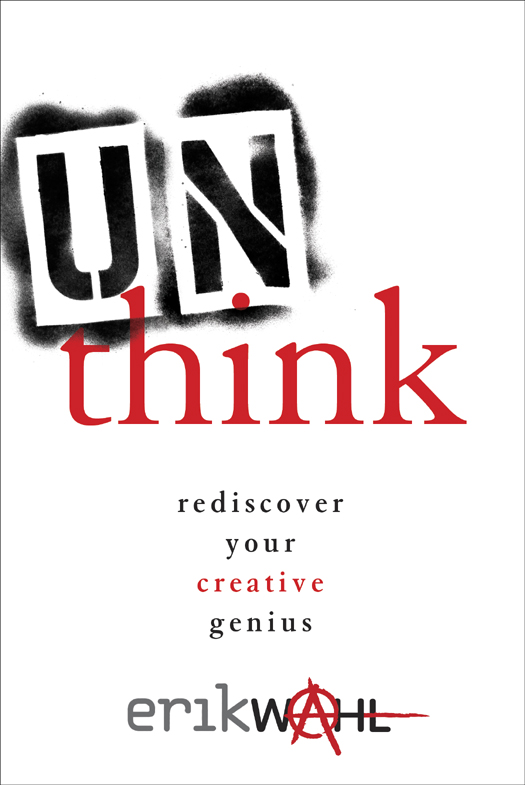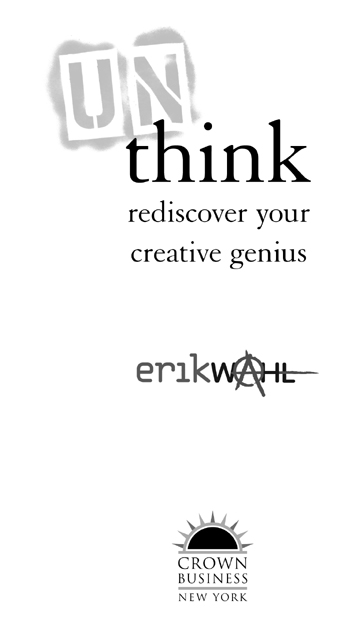Copyright 2013 by Erik Wahl
All rights reserved.
Published in the United States by Crown Business, an imprint of the
Crown Publishing Group, a division of Random House, Inc., New York.
www.crownpublishing.com
CROWN BUSINESS is a trademark and CROWN and the Rising Sun
colophon are registered trademarks of Random House, Inc.
Library of Congress Cataloging-in-Publication Data
Wahl, Erik.
Unthink / Erik Wahl.First edition.
pages cm
1. Creative thinking. 2. Creative ability in business.
3. Organizational change. I. Title.
HD53.W34 2013
153.35dc23 2013004800
eISBN: 978-0-7704-3402-1
Illustrations by Erik Wahl
Jacket design by Via Design
v3.1

They say that dedicating a book is one of the most exquisite acts of love one can perform. Without hesitation I dedicate this book to my artistic inspiration, my best friend, my unconditional lover, my wife of eighteen years, Tasha. Come hell or high water I will forever dance through the minefields and long to be tangled up in your arms.
The world is but a canvas to our imaginations.
H ENRY D AVID T HOREAU
We secretly believe that creative genius is reserved for the chosen fewfor the poets, the painters, the writers. The truth is that breakthrough creativity is in all of us. It is us. It is the process through which you and I discover all we were meant to be and do. Without it you and I are little more than waves tossed about by the Great Sea, arriving where the winds and currents of our life funnel us. Breakthrough creativity is the force that changes that tide. It is the daring ship that rises up on the Great Sea and employs the wind and waves to its advantage as it sails in search of new and better lands. This is as vital to your happiness as it is to the value of your work.
Dont be fooled. Creativity does not reside in one special person. And it is not in one special place. It is everywhere and in everyone who has the courage to tap into his or her full potential. Creative genius is born of the desire for adventure that never leaves you the ever-present wanderlust that beckons you from your tidy, predictable days the insatiable curiosity that forever hopesforever longsfor life to be bigger and more vibrant and more meaningful than the one you currently live. Following those promptings is your path to freedom. It begins when you see yourself for who you truly are.
You are a fearless artist capable of original, breakthrough ideas and solutions at any moment, on any day. But over time, you have been steered away from venturing, wandering, and wondering. Youve been taught to think logically, but not daringly, concretely, or instinctively. Youve all but forgotten the artistic tools with which you were born.
Once you rememberonce you learn to unthink how you live and workeverything will change.
What you should know from the start is that I have not always been an artist. I was not born with artistic skills and I wasnt very good at art as a child. At least thats what was told to me by a well-meaning elementary school teacher wanting to direct me toward more practical pursuits. It wasnt until years later, when I finally lost my safe identity, that I rediscovered my fearless creativitythat whole and confident identity, hidden inside us all, that compels us into the unique quest for which we were each made.
Let me tell you my whole story. This could be your story too.
I was good at school. Efficient at testing, I measured my self-worth and value as a student, and as a man, the way I was taught to: by the grades I received. I was a rule followeroperationally efficient. A teachers dream.
In perfecting this persona I became a purveyor of no-nonsense order and execution. There was little value in creativityit didnt offer a structure that allowed for a clear-cut way to measure my progress. And so I consented to becoming successful by being the most efficient rule follower around.
After securing my college degree I found a comfortable job that played well to my tidy work ethic. I earned a decent salary and a job title that made me feel respectable at social gatherings. I religiously followed the standard corporate system and was rewarded with standard corporate success. But the cost of the journey was the loss of the part of me that kept life beautiful and fascinating and fun. Looking back, I realize my career stability was becoming a dangerous addiction that was keeping me from taking any real risk or pursuing any real adventure.
I was achieving what the world called progress, but was I really going anywhere I wanted to be?
Though I wouldnt admit it then, after a decade in the business world I still couldnt kick a certain feeling that my best talents were wasting away inside me. I was successful but my day-to-day life was less and less satisfying.
In an effort to overcome this lackluster existence, I began to feed my ego. I bolstered my public image and tried to find the satisfaction I was lacking by overextending myself financially in what I thought were prudent, leveraged investments to puff up my brand. In truth, I wasnt trying to prove myself to the world. I was trying to prove myself to me.
Then it happened. The dot.com bubble that had been so cooperative in helping me build my fortress of security finally burst. The financial world collapsed, my career went into a tailspin, and I lost everything: my money, my investments, my security, and, ultimately, my identity.
It was a gut-wrenching and nauseating experience. I was forced to start from ground zero at thirty years old, with a wife and three children under five years old. At night I was especially tormented, lying awake obsessing about my losses.
For someone like me, who had spent a lifetime fighting weakness, my vulnerability was a new, unfamiliar, awkward feeling. Ironically, it was this weakness, this reluctant confession of need, that would serve as my escape hatch to a new life.
I finally admitted that my days hadnt been inspiring theyd just been okay serviceable mostly they paid the bills and gave me a sense that I was making progress. But that progress didnt move me.
That is when I woke from my standardized slumber and began to explore. I became a child again.
My frustration and anger led me to self-reflection, then inspiration. I determined to break free from the addiction to security that had lulled the passionate version of me to sleep. I rebelled against my elementary school teachers conclusion that art just wasnt my thing and reawakened the artist inside me.
All change is preceded by crisis, wrote Sren Kierkegaard. My crisis was an utter but necessary loss of the framework through which I viewed myself and my work. Suddenly I saw that the processes I had ordered into easily repeatable patterns had formed a ceiling over my potential. I realized that my dreams were being held captive by convention, and my imagination had been lulled to sleep by the potion of predictability.


